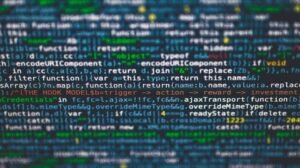Where Artificial Intelligence Is Used
Artificial Intelligence (AI) is revolutionizing various industries and becoming an integral part of our daily lives. Through the development of sophisticated algorithms and advanced computing systems, AI has the ability to mimic human intelligence and perform tasks that once seemed impossible. From healthcare to finance, let’s explore the diverse applications of AI and its impact on the world around us.
Key Takeaways
- AI is used in various industries, including healthcare, finance, retail, and transportation.
- Machine learning, natural language processing, and computer vision are common AI techniques.
- AI systems can automate repetitive tasks, enhance decision-making processes, and improve efficiency.
Healthcare
In the field of healthcare, AI has shown great potential to improve patient care and save lives. AI-powered systems can analyze vast amounts of medical data to assist doctors in diagnosing diseases and suggesting treatment plans. *By leveraging AI, doctors can detect early signs of diseases like cancer and provide timely interventions.* AI is also used for robotic surgeries, drug discovery, and personalized medicine.
Finance
The finance industry heavily relies on AI to process large volumes of data and identify trends and patterns. AI algorithms are applied to analyze financial markets, predict stock prices, and detect fraudulent activities. *With AI-powered chatbots, financial institutions can provide personalized customer support 24/7.* Furthermore, AI enables the automation of complex tasks such as risk assessment and credit scoring, making financial processes more efficient.
Retail
AI is reshaping the retail landscape by enhancing customer experiences and optimizing supply chain management. Retailers leverage AI to understand consumer behavior and preferences, enabling targeted advertising campaigns and personalized product recommendations. *Through image recognition, AI can quickly process and categorize products, improving inventory management and reducing errors.* Additionally, AI-powered virtual assistants can assist customers in finding products, answering queries, and facilitating online purchases.
Transportation
The transportation industry is embracing AI to revolutionize autonomous vehicles, optimize logistics, and improve safety. Autonomous cars use AI algorithms to analyze real-time data and make decisions while on the road. *AI algorithms can process traffic patterns, weather conditions, and road infrastructure to ensure safer and more efficient journeys.* Furthermore, AI is used to manage and optimize fleet operations, reducing fuel consumption and minimizing environmental impact.
Tables
| Application | Description |
|---|---|
| Diagnosis | AI assists doctors in diagnosing diseases by analyzing medical data. |
| Robotic Surgery | AI enables precise and minimally invasive robotic surgeries. |
| Drug Discovery | AI accelerates the discovery and development of new drugs. |
| Personalized Medicine | AI helps tailor medical treatments based on an individual’s unique characteristics. |
| Application | Description |
|---|---|
| Targeted Advertising | AI enables retailers to create personalized ad campaigns for specific customer segments. |
| Product Recommendation | AI algorithms analyze customer data to recommend products based on preferences and browsing behavior. |
| Inventory Management | AI-powered systems optimize inventory levels and prevent stockouts. |
| Virtual Assistants | AI-powered chatbots provide customer support and assist in online shopping. |
| Application | Description |
|---|---|
| Autonomous Vehicles | AI algorithms enable self-driving cars to navigate and make real-time decisions. |
| Logistics Optimization | AI optimizes transportation routes and delivery schedules for efficient supply chain management. |
| Traffic Management | AI systems analyze traffic patterns and optimize traffic flow in real-time. |
| Vehicle Maintenance | AI can predict and schedule maintenance tasks to prevent breakdowns and improve safety. |
In Closing
As AI continues to advance at a rapid pace, its applications span across various industries, transforming the way we live and work. From healthcare to finance, retail, and transportation, AI is revolutionizing processes, enabling better decision-making, and enhancing overall efficiency. With its ability to analyze massive amounts of data and learn from it, AI is poised to shape the future across numerous domains.

Common Misconceptions
1. AI and Robots are Synonymous
One common misconception about artificial intelligence is that it is only used in robots. While AI has certainly advanced the capabilities of robotics, it is not limited to just this field. In fact, AI is utilized in many other areas, including:
- Virtual assistants like Siri and Alexa
- Smart home devices such as thermostats and security systems
- Recommendation systems used by online platforms
2. AI is All About Automation
Another common misconception is that AI is solely focused on automating tasks and replacing human workers. While AI can certainly automate certain processes, its primary purpose is to augment human capabilities and enhance decision-making. This is achieved through:
- Natural language processing to improve communication between humans and machines
- Predictive analytics that assist in data-driven decision-making
- Machine learning algorithms that analyze and extract valuable insights from large datasets
3. AI is Only Used in High-Tech Industries
Many people believe that AI is predominantly used in high-tech industries, such as software development or telecommunications. However, AI has a far-reaching impact and is implemented in a wide range of sectors, including:
- Healthcare, where AI is used for medical imaging analysis and drug discovery
- Finance, where AI is employed for fraud detection and algorithmic trading
- Retail, where AI enhances customer experience through personalized recommendations and inventory management
4. AI Can Completely Replace Human Intelligence
Contrary to popular belief, AI is not designed to entirely replace human intelligence. While it can perform certain tasks more efficiently and accurately than humans, there are tasks that still require human involvement. AI is most effective when it collaborates with humans, providing valuable insights and assistance to human operators. Some areas where human intelligence remains irreplaceable include:
- Creative tasks that require originality and emotional understanding
- Complex problem-solving that involves ethical considerations
- Interpersonal skills and human interaction
5. AI is a Future Technology
Lastly, there is a misconception that AI is a technology of the distant future. In reality, AI is already widely used in our daily lives and continues to rapidly evolve. It has become an integral part of various industries and is continually shaping the way we live and work. Some examples of AI in everyday life include:
- Chatbots used by customer service departments
- Virtual reality and augmented reality applications
- Recommendation systems on streaming platforms

Introduction:
Artificial intelligence (AI) has become increasingly prevalent in various industries, revolutionizing the way businesses operate. From healthcare to finance to transportation, AI is being utilized in numerous ways to streamline processes, enhance decision-making, and improve efficiency. In this article, we explore 10 fascinating applications of artificial intelligence.
AI in Healthcare Diagnosis:
Artificial intelligence has transformed the field of healthcare by offering accurate and timely diagnosis. By analyzing vast amounts of medical data and identifying patterns, AI systems can provide quick and reliable diagnoses, leading to faster treatment plans and improved patient outcomes.
| AI Diagnosis in Healthcare | Benefits |
|---|---|
| Early detection of diseases | Improves chances of successful treatment |
| Reduced diagnostic errors | Enhances patient safety |
| Efficient triage and patient prioritization | Optimizes healthcare resources |
AI in Virtual Assistants:
Virtual assistants powered by AI have become indispensable tools in our everyday lives. These intelligent assistants can perform a variety of tasks, such as answering questions, setting reminders, playing music, and even controlling our smart homes, making our lives more convenient and efficient.
| AI Virtual Assistants | Features |
|---|---|
| Natural language processing | Understands and responds to spoken language |
| Voice recognition | Identifies different users and adapts to their preferences |
| Smart home integration | Controls various connected devices |
AI in Autonomous Vehicles:
Self-driving cars are a prime example of AI revolutionizing the transportation industry. AI algorithms enable autonomous vehicles to navigate roads, make decisions, and ensure passenger safety. The integration of AI in vehicles has the potential to reduce accidents, improve traffic flow, and enhance transportation accessibility.
| AI in Autonomous Vehicles | Benefits |
|---|---|
| Enhanced road safety | Reduces human error |
| Improved fuel efficiency | Optimizes eco-friendly driving |
| Increased accessibility for the elderly and disabled | Enhances mobility for all individuals |
AI in Cybersecurity:
In the digital era, AI plays a vital role in safeguarding our data and systems from cyber threats. AI-powered cybersecurity systems can analyze vast amounts of data in real-time, detect anomalies, and identify potential threats, enabling proactive measures to protect sensitive information and prevent cyber attacks.
| AI in Cybersecurity | Features |
|---|---|
| Real-time threat detection | Identifies and neutralizes emerging threats |
| Anomaly detection | Detects abnormal user behavior or network activity |
| Automated incident response | Quickly mitigates security breaches |
AI in Customer Service:
AI-driven chatbots and virtual customer assistants are transforming the customer service landscape. These AI-powered tools can assist customers, answer queries, and even provide personalized recommendations, delivering prompt and efficient service while reducing the need for human intervention.
| AI in Customer Service | Benefits |
|---|---|
| 24/7 availability | Improved customer satisfaction |
| Efficient problem resolution | Reduces waiting times |
| Personalized recommendations | Enhances customer experience |
AI in Financial Services:
Artificial intelligence has revolutionized the financial industry by enhancing efficiency and accuracy in various processes. AI algorithms can analyze vast amounts of financial data, detect patterns, and make predictions, enabling more informed financial decisions, fraud detection, and risk management.
| AI in Financial Services | Applications |
|---|---|
| Automated trading | Executes trades based on complex algorithms |
| Fraud detection | Identifies suspicious transactions in real-time |
| Robo-advisors | Provides personalized investment advice |
AI in Retail:
AI technology is revolutionizing the retail industry, transforming the way businesses interact with customers and optimize operations. From personalized product recommendations to inventory management to smart check-out systems, AI is improving the shopping experience and driving sales.
| AI in Retail | Features |
|---|---|
| Personalized recommendations | Increases customer engagement and satisfaction |
| Inventory management | Reduces stock-outs and excess inventory |
| Smart check-out systems | Enhances efficiency and minimizes waiting times |
AI in Education:
Artificial intelligence is making a significant impact on the education sector by offering personalized learning experiences and improving administrative tasks. AI-powered educational platforms can provide tailored learning content, adaptive feedback, and automated grading, enabling students to learn at their own pace and allowing teachers to focus more on individual student needs.
| AI in Education | Advantages |
|---|---|
| Personalized learning | Matches content to the student’s abilities and interests |
| Automated grading | Saves time for educators and provides instant feedback |
| Enhanced administrative tasks | Streamlines administrative processes in schools |
AI in Agriculture:
Artificial intelligence is revolutionizing the agricultural industry, enabling farmers to optimize crop production, improve resource management, and enhance overall productivity. AI-powered solutions can analyze soil data, monitor crop health, and predict weather patterns, providing valuable insights for efficient farming practices.
| AI in Agriculture | Benefits |
|---|---|
| Precision farming | Optimizes resource usage and minimizes waste |
| Early pest and disease detection | Prevents crop losses |
| Weather pattern prediction | Enables proactive decision-making |
Conclusion:
Artificial intelligence has permeated numerous industries, revolutionizing the way we work, live, and interact. From healthcare to transportation to education, AI-powered solutions are driving innovation and efficiency. As technology continues to advance, we can expect even more fascinating applications of artificial intelligence in the future, shaping a world of endless possibilities.
Frequently Asked Questions
What is artificial intelligence?
Where is artificial intelligence used?
How is artificial intelligence used in healthcare?
In which ways is artificial intelligence utilized in finance?
What role does artificial intelligence play in transportation?
How is artificial intelligence incorporated in manufacturing?
What are the applications of artificial intelligence in education?
In which ways is artificial intelligence used in gaming?
How does artificial intelligence support customer service?
How does artificial intelligence contribute to cybersecurity?




